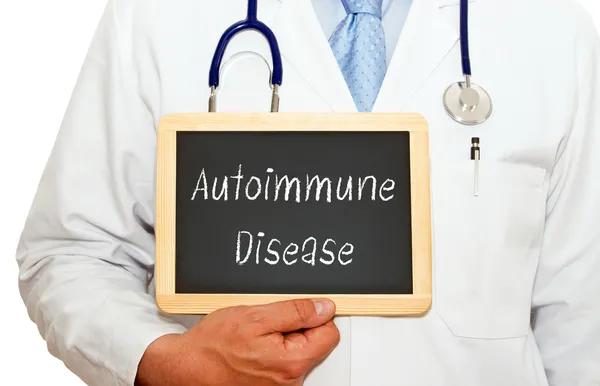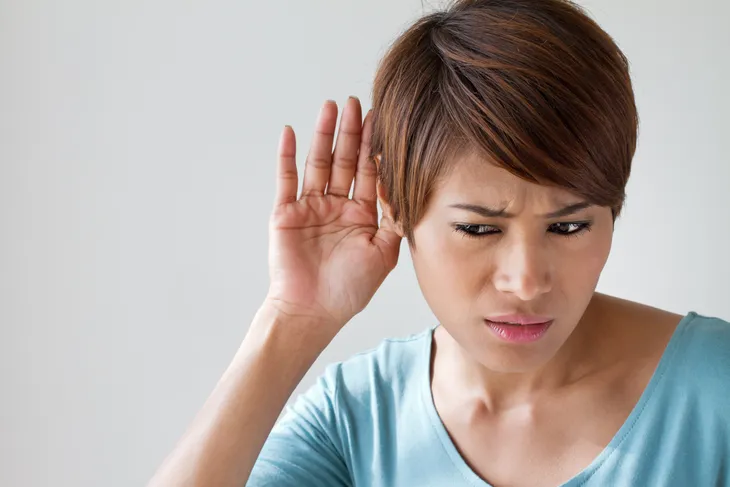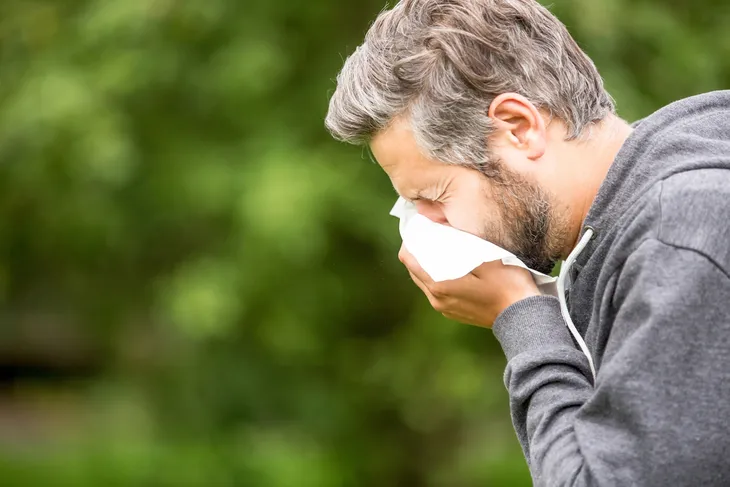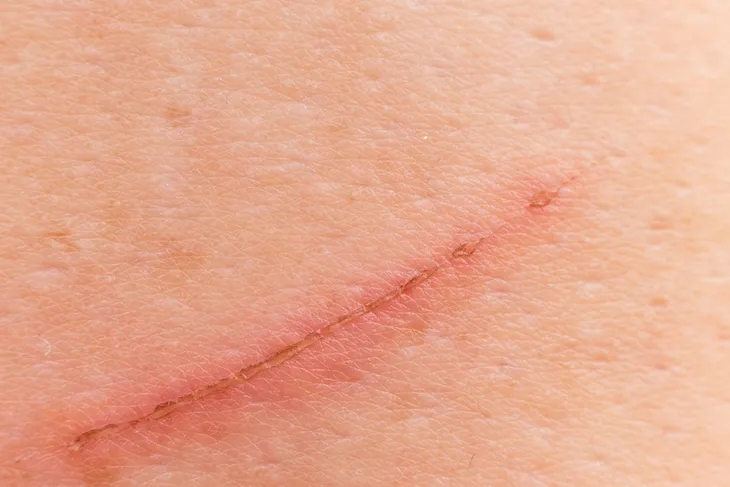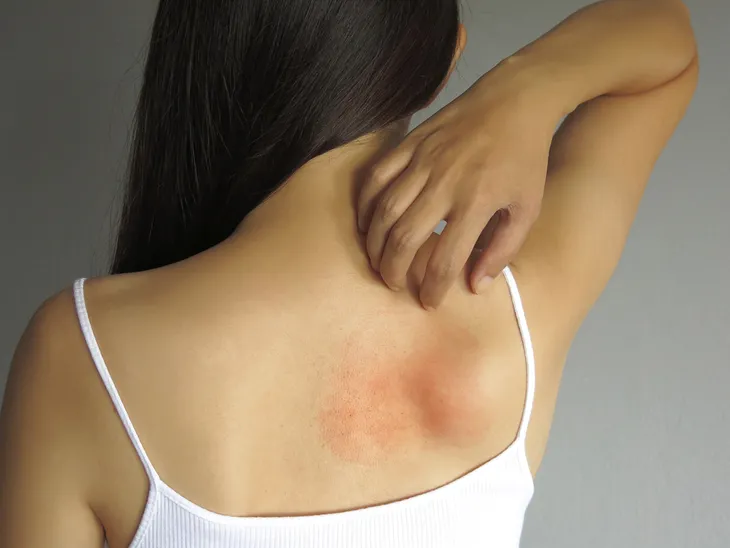Of all the essential minerals, we’re perhaps the least familiar with zinc, which is strange because it’s super important! This element is required to keep your immune system and cell division running smoothly. While many of us get adequate levels of zinc through our diet, certain populations (i.e., aging adults, vegans, and vegetarians) may be lacking.
According to researchers from Oregon State University’s Moore Family Center For Whole Grain Foods, Nutrition, and Preventative Health, diets lacking animal proteins that are also high in legumes and whole grains (which contain phytates that bind and make zinc absorption difficult) risk zinc deficiency. So let’s take a look at some of the most common warning signs of a zinc deficiency…
Want diet & nutrition content delivered straight to your inbox? Sign up for our exclusive diet & nutrition newsletter!
Weak Immune System
Mayo Clinic research suggests that zinc is vital to immune health, but research on its impact on immune function is limited. For instance, limited studies link zinc gluconate levels to healthy immune cells.
Further studies claim that low levels of zinc can compromise immune health and leave us susceptible to various bacterial and viral infections (i.e., skin infections, gastritis, ulcers, and flu).
Appetite Loss
Do foods you normally enjoy suddenly taste lacklustre? It could be due to a lack of zinc. Numerous studies link diminished ability to taste and smell foods (dysgeusia and anosmia) with a zinc deficiency. “You can have symptoms that mimic anorexia,” says Boyan Hadjiev, MD, certified in internal medicine and allergy and immunology to Reader’s Digest. “You can have symptoms that affect your mental function, including you learn and how you perceive pleasure,” which might also play into appetite loss.
Luckily there is research that shows taking zinc orally can improve the symptoms of people who have taste disorders, “since it may help stimulate a region in your brain that controls your food intake,” explains Prevention. Another strange factor of this is that it seems to be more prominent in people who are over the age of 60. These adults are already at a higher risk for having a zinc deficiency and might be taking other medications that affect their ability to taste.
Stunted Growth in Children
WebMD points out that the biggest indication of zinc deficiency can be seen in children who are underweight and lacking in height among children in the same age group. This is because the mineral plays an essential role in cell growth, brain development, immune system process, memory, attention span, and reproductive growth. Reader’s Digest points out that a better understanding of zinc deficiencies and growth was developed after several studies followed adolescent athletes, particularly gymnasts. “A combination of increased sweat loss with a decreased intake of certain foods” makes some athletes more prone to a zinc deficiency, says Boyan Hadjiev, MD, to the source.
A 2002 report published in the American Journal of Clinical Nutrition noted that 6-percent of U.S. girls and 10-percent of boys are zinc deficient. The best way to rebalance zinc in the body by eating more seafood, cereal, dried beans, red meat, and whole grains to their diet.
Hair Loss
The average person loses about 50 to 100 hairs every day, and on days when it’s washed it can be even more! So losing a few strands here and there in the shower or in a brush isn’t anything to worry about, but if someone notices their hair thinning or coming out in large amounts, it could be due to a zinc deficiency. According to the National Institute of Health, low zinc levels can cause hair loss. In fact, in some cases people who suffer from conditions that cause hair loss like alopecia or other autoimmune diseases might also be low in zinc.
“While some people have seen positive results from topical and oral zinc medications, more research needs to be done to fully understand the connection,” says Prevention.
You Have One of These Conditions…
Patients with an autoimmune disease (i.e., Colitis or Rheumatoid Arthritis), Wilson’s Disease, a neurological disorder (i.e., Alzheimer’s Disease), atherosclerosis (artery disease), or diabetes may already be predisposed to zinc deficiency according to oncologists at Wayne State University. Why is this?
Well Prevention explains that “zinc keeps your immune system humming along and promotes healthy cell growth.” Therefore, when we don’t get enough zinc, our body can’t fight off things like harmful free radicals and inflammation which are both associated with so many chronic diseases and conditions.
Hearing Loss
In addition to your sense of taste and smell, a zinc deficiency can also diminish your hearing. A 2015 study published by the National Institutes of Health, found that 12-percent of 100 patients with hearing loss were zinc deficient (due to inflammatory and oxidative stress in the inner ear).
Likewise, a previous National Institutes of Health report from 2011 noted that when a group of 66 hearing loss patients were administered zinc supplements, they experienced significant hearing improvements.
Acne
According to Women’s Health, 6-percent of the zinc in our body is located in our skin. Because this mineral helps with inflammation and killing bacteria, as well as the absorption of vitamin A and E, it’s not all that surprising that a lack of zinc can cause our skin to breakout.
There is some research that suggests taking zinc supplements or applying a topical treatment with zinc can improve acne or limit breakouts. “Researchers believe zinc may have anti-inflammatory properties and reduce the amount of acne-triggering oil and bacteria in your skin, according to a review published in Dermatology Research and Practice,” writes Prevention. However, acne can be due to many different things like skincare routine, diet, birth control, or even hormones, so consulting with a doctor or dermatologist is the only way to determine if it’s actually a result of a zinc deficiency.
Allergies
Someone who is suffering from a zinc deficiency might find that their allergies are much worse. This is because “zinc is a key factor in how your body stores histamine. So, since it is required to store histamine, zinc deficiency allows more histamine to be released into the surrounding tissue fluids,” writes Dr. Axe.
The source goes on to explain that an excess of histamine in the body will cause things like a runny nose, sneezing, hives, etc, to occur which are all symptoms associated with allergies. A high level of histamine in the body also makes someone more sensitive to all allergic reactions.
Vision Loss
We need zinc in order for our body to function properly. While you might think it has more to do with our organs or digestive health, zinc is actually super important for our sight. Our eyes have a high concentration of zinc in them, particularly the retina, says Prevention.
“That’s because zinc helps transport vitamin A from your liver to your retina to produce protective pigments in your eyes,” writes the source. As such, zinc is important for keeping our eyesight sharp, so when we don’t get enough of it, it can result in some vision loss.
Wounds That Won’t Heal
Zinc plays an important role in how the body functions, even how it heals. An individual with slow healing wounds might be suffering from a zinc deficiency. “Because zinc is essential to your immune health, you might become more vulnerable to viral or bacterial infections when you dip into deficiency status,” writes Prevention. “Cuts and scrapes may take longer to heal as well, according to the NIH, since your body also relies on it to repair tissues,”
Diarrhea
Healthline lists diarrhea as one of the most common symptoms of a zinc deficiency. Now just because a person has diarrhea once doesn’t mean they are suffering from a zinc deficiency. It’s a common symptom that can occur for a number of different reasons. “You can have diarrhea, which is a very common finding. It’s the most common finding,” says Boyan Hadjiev, MD, certified in internal medicine and allergy and immunology to Reader’s Digest.
He goes on to explain that if it is due to a zinc deficiency, “you would experience the symptoms more often and continuously versus a sudden attack of nausea or diarrhea.”
Poor Neurological Function
Zinc plays an important role in our neurological function and growth which is why low zinc levels have been linked to attention and motor disorders. Dr. Axe refers to a Chinese study published in the American Journal of Clinical Nutrition which found that a “zinc supplement providing just 50-percent of the recommended daily allowance improved attention,” writes the source.
However it’s important to note that the best way to get zinc isn’t by supplement, it’s through food sources. We should all be eating a balanced diet that includes nutrients “found in whole foods, which is why it is so important to contact your natural health care physician for some much needed guidance should you suspect a zinc deficiency,” says Dr. Axe.
Losing Sleep
Melatonin is something most of us are familiar with because it’s the hormone in our body that allows us to fall asleep. It’s also widely used in supplement form for people who have trouble falling asleep. What a lot of people probably don’t realize is that zinc plays a huge role in our body’s ability to produce melatonin.
Women’s Health points out that there was even a study which found that people who suffered from insomnia were able to improve their symptoms after taking a zinc supplement.
Rashes
Skin conditions and rashes are an obvious symptom because we can see if they develop, but like many other symptoms on this list, you might not be quick to link it to a zinc deficiency. But rashes like eczema or dermatitis are yet another sign of a zinc deficiency. “The list of findings is very generalized. You can have abdominal pain, loss of hair, loss of appetite, delayed wound healing,” says Hadjiev when talking to Reader’s Digest. “You can be depressed, you can have eczema or dermatitis, especially if it’s around the mouth or the anus.”
Nausea
Nausea is a tricky one because it can be a symptom of a zinc deficiency, as well as a sign of too much zinc. However a zinc overdose is extremely uncommon and usually only happens with people who take supplements. “If you eat a ton of oysters, every day, it is possible. You need to take a lot of darn oysters. It would be difficult to exceed [recommended zinc levels] on just food,” says Boyan Hadjiev, MD, certified in internal medicine and allergy and immunology to Reader’s Digest.
Lisa Moskovitz, RD, CDN, CPT, also tells Reader’s Digest that nausea can be a symptom of too much zinc, but if that’s the case they will also experience much worse symptoms like damage to the stomach lining and a risk of anemia.





